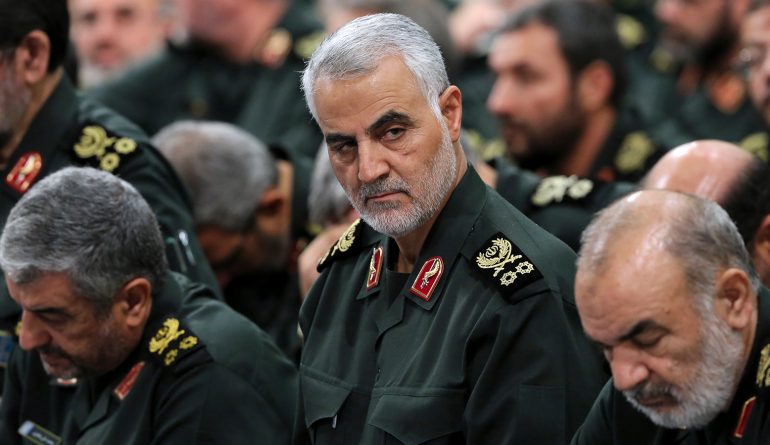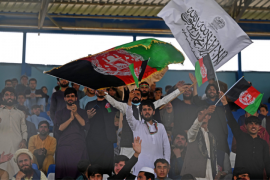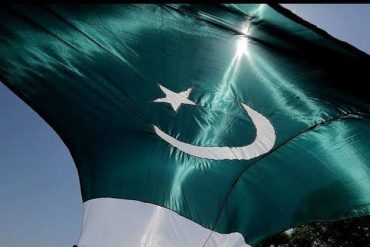STRAIGHT TALK by Hafeez Khan
The recent death of General Qasem Suleimani in a US drone attack has raised the temperatures in the Middle East conflict. It has evoked a very strong reaction from Iranian leaders. Imam Khamenei, the Supreme Leader has threatened “harsh revenge” from the perpetrators.
On the other hand American President Trump has justified this attack as “an attempt to end a war not to begin a new one”. It is being hailed as a victory by some quarters and an assassination by others. For Pakistan It is a delicate situation to be treaded very cautiously.
The Middle East conflict is like a simmering fire that can flare up into a conflagration by a tiny misstep. The situation is getting more and more complicated with a potential of escalation if you read Trump’s tweets and angry reactions in Iran and Iraq.
Can one person change the course of history? It is interesting to look into the journey of life of Qasem Suleimani. He was born to poor peasant parents in a village in Kerman region of Iran. One of seven siblings, five sisters and brother, Qasem moved to the city of Kerman at a young age. He worked as a construction worker to pay off debts owed by his father. In his off time he would frequent the gym and listen to sermons of Hujjat Kamyab, a protégé of Imam Khomeini.
I visited Iran just prior to the Islamic revolution when Shah of Iran was ruling with an iron fist, fully in control of the all arms of governance. Those were heady days of the ruling elite totally detached from the needs and plight of the commoners. I hate to say it, but something similar is happening in Pakistan where the rich are becoming richer, middle class is shrinking and poverty is on the rise.
The Iranians are proud people; discontent was simmering at the grass roots but they always were well dressed and put on a brave face. In the late seventies there were no cell phones, Ayatullah Khomeini’s messages would come as written notes, photocopied in clandestine locations and circulated amongst the public on motorbikes right under the nose of vicious, omnipresent Savak, Shah’s ruthless secret service.
Shah of Iran’s well equipped army was solidly behind him. Their attempts to crush the revolting public failed miserably. Popular will has its dynamics. It was in this environment that Qasem Soleimani joined the revolutionary guards, the elite force that spearheaded Iran’s Islamic revolution. The new regime had barely consolidated when the eight year war started between Iran and Iraq ending in 1988. Suleimani emerged as a leader through his bravery and tactical skill. He had made powerful connections with Iraqi Kurds, and other Shiite militias including Badr and Hezbollah.
He had a meteoric rise in his military career emerging as a powerful and effective General. Without any formal training he emerged as skillful leader. His hawkish views became clear in 1999 when he was a signatory to a letter of generals to then president of Iran seeking to crush the student rebellion.
There was no looking back for him when he became the flag bearer of expanding Iranian influence in the region. Appointed as head of Al Quds Force, General Suleimani played a pivotal role in Lebanon in the rise of Hezbollah and developed strong ties with Syrian President Bashar Asad. His involvement grew with Iraqi governments after the overthrow of Saddam Hussein. He always shunned the limelight but grew as military commander casting his shadow over Iraq, Yemen and Syria defending the regime of Bashar Asad.
When ISIS, subsequently known as ISIL emerged in Iraq and Syria capturing huge swaths of land, Suleimani played a pivotal role in fighting back. At one point while fighting alongside Kurdish forces, the air cover was provided by American planes! He was instrumental in bringing in Russian forces, including their air force creating a Russian, Iranian, Syrian axis that defeated ISIL winning back Aleppo, Takrit and Mosul. An ex CIA operator called him “single most powerful operator in the region”. His footprint on the war in Yemen was large in arming and strategizing with Huti rebels.
General Suleimani was extremely popular with Iranians, probably right after Imam Khamenei. They wanted him to run for President in 2013 and again in 2017. He always shunned the lime light and kept a low profile. Very few people had heard of him before the drone attack.
However the Americans were fully aware of his effectiveness. USA is on the defensive in Syria and Iraq. Their opponents were becoming emboldened and aggressively attacking US targets. This drone attack removed the greatest Iranian asset in one stroke. It will greatly impair the spread of Iranian influence in the region. President Trump in an election year needed that feather in his cap. Under severe pressure at home after impeachment, he needed this infusion to claw back and regain the initiative.
Is Trump looking for another war theater? Historically American voters have re-elected their sitting President during a war, even though they have punished them after a misadventure, if a clear victory does not emerge. In this conflict in the Middle East I seriously doubt there can be any winners or losers!
The underlying issues of Jews and Muslims, Shias and Sunnis, the control of oil resources, theocracy, dictatorship, and democracy cannot be resolved with force; it requires reaching coexistence through negotiations. At this point with emotions running high and threats being hurled by both sides, that opportunity is remote. Pakistan needs to stay away from getting sucked into this quagmire despite extreme pressures. We have to be sensitive to our sizeable Sunni and Shia citizens, and our own national interests.





